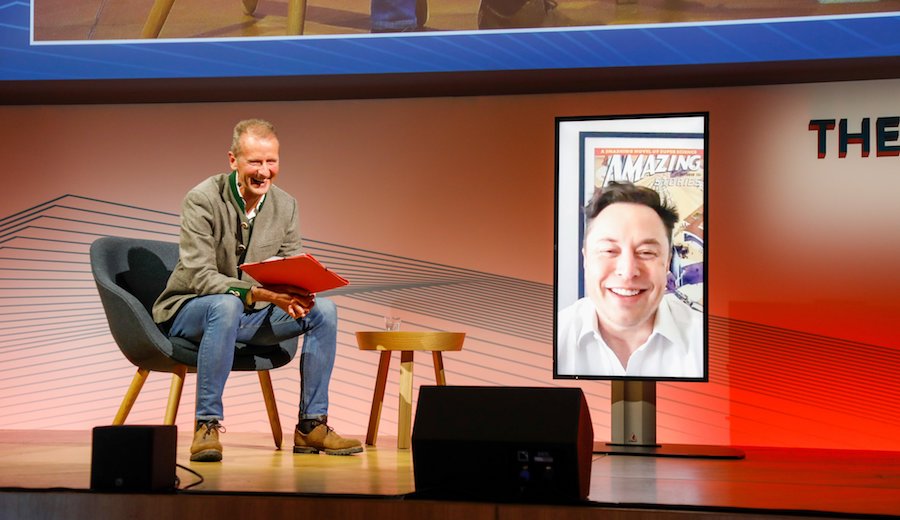
Addressing thousands of workers at the VW’s Wolfsburg plant Diess told them they needed to work together to the company “future-proof.”
Tesla is on track to achieve a production time of just 10 hours per car at its Gruenheide plant, Diess said. VW’s main EV factory in Zwickau currently needs more than 30 hours per vehicle, which should be reduced to 20 hours next year.
The executive said the next VW Golf, the company’s best seller, should not be made by Tesla, or come from China. “The next icon in the market must be one made in Wolfsbur, VW hometown,” he said through its Twitter account.
“Der nächste #VWGolf darf kein @Tesla sein. Der nächste Golf darf nicht aus China kommen. Die nächste Ikone muss wieder ein Wolfsburger sein: Trinity!”, sagte #VWGroup CEO @Herbert_Diess auf der Belegschaftsinformation in Wolfsburg.
Seine Rede gibt es hier auf @LinkedInDACH
— Volkswagen Group (@VWGroup) November 4, 2021
The next VW Golf can’t be a Tesla
The next VW Golf can’t come from China
The next icon has to be again one of Wolfsburg – the city where VW’s headquarters are – : The Trinity!
VW’s new works council chief Daniela Cavallo called on Diess to focus his attention on resolving the persistent chip shortage that hit VW harder than Tesla or BMW, rather than engaging in social media activities.
She was partially referring to Elon Musk recent appearance via video at a VW executive meeting, after being invited to do so by Diess.
The lack of chips forced VW to slash output at Wolfsburg to the lowest level in almost 70 years.
The slow-down has resulted in the delivery of 122,100 all-electric cars, including a small number of commercial vehicles, in the third quarter of 2021. Tesla produced, in the same period, 241,300 units.
VW, which owns Porsche, Audi, Skoda and SEAT, sold 231,600 battery electric vehicles in 2020. That’s less than half the number of sales Tesla made, but it represents an increase of 214% on the previous year. Rapid growth is expected to continue as Volkswagen launches 70 electric vehicles and opens six battery gigafactories in Europe before the end of the decade.
The automaker’ substantial investment in EVs – 35 billion euros ($41.7 billion) by 2025 is centred on cell technology and further downstream in the form of charging infrastructure and recycling of spent batteries.
Shortages
Both VW and Tesla may see plans thwarted by an expected shortage of battery metals, namely nickel and lithium.
Musk has expressed worries about a nickel supply. He pleaded with miners last year to produce more nickel, promising a “giant contract” for supply produced efficiently and in an “environmentally sensitive way.”
Last month, the EV giant inked a multi-year nickel supply deal with New Caledonia’s Prony Resources. The contract guarantees it about 42,000 tonnes of the metal needed to produce the batteries that power its EVs.
Tesla also has a similar agreement with BHP.
VW is said to be in talks with suppliers to secure direct access to raw materials





